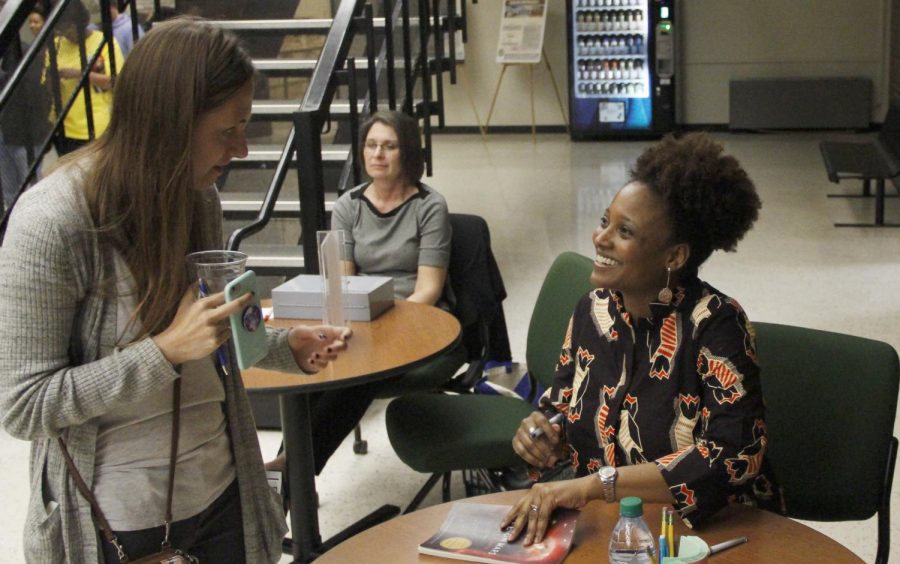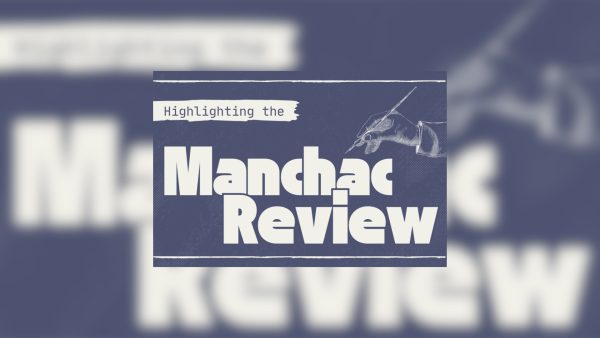Three different ways to publish a book
File Photo/The Lion’s Roar
Tracy K. Smith, United States Poet Laureate, signs her book “Life on Mars” when visiting the campus as part of the common read program. Like Smith, authors can find ways to publish their own stories.
From acclaim by a major American newspaper to a student at the university, publishing has helped writers create a public image through their stories.
Kent Wascom, a Washington Post-acclaimed author, David Armand, writer-in-residence, and Cedric Dent Jr., a senior social work major, chose to present their own stories to the public in different ways.
Armand, who writes memoirs and poetry, explained the process of publishing through small-time university presses.
“What they look for is the best work that they can find,” said Armand. “It doesn’t matter where it comes from, and the good thing is they’re never thinking, ‘Is this going to sell a lot of copies?’ If they like it, they’ll publish it.”
Armand contrasted this frame of mind with larger publishers.
“With big publishers, they might really like something, but they always look at the market,” explained Armand. “They’ll be like, ‘Well, yeah, but we can’t take this book right now because this kind of book doesn’t sell.’”
Full-time authors should consider possible drawbacks to the occupation.
“The downside is that you don’t get the money for the books, but the upside is that you have a lot of control as far as a lot of times it’s how you want your book to look or where you want them to send it,” shared Armand.
Wascom, who followed the traditional route of finding an agent for his historical fiction books, opted for a larger press, waiting three years to find one willing to publish his first book.
“Having a publisher and having a contract that’s like, ‘We’re going to publish this book,’ puts me in a position of freedom that someone who’s not at that point yet, they don’t have,” said Wascom.
A contract with his publisher helps to ease Wascom’s doubts.
“I know in the back of my head that like, someone’s gonna read it,” shared Wascom. “It may not be super successful, but someone’s going to read it.”
For Dent, self-publishing his book was the best route.
“As a self-published author, I can say this was the way to go because I learned how to be independent in this process, but also ask for help when I needed it,” explained Dent.
Dent offered advice for other students who might consider writing their own book.
“If you have a passion for it, do it,” expressed Dent. “Everyone has a story, but it is up to you to tell it.”
Your donation will support The Lion's Roar student journalists at Southeastern Louisiana University.
In addition, your contribution will allow us to cover our annual website hosting costs.
No gift is too small.





